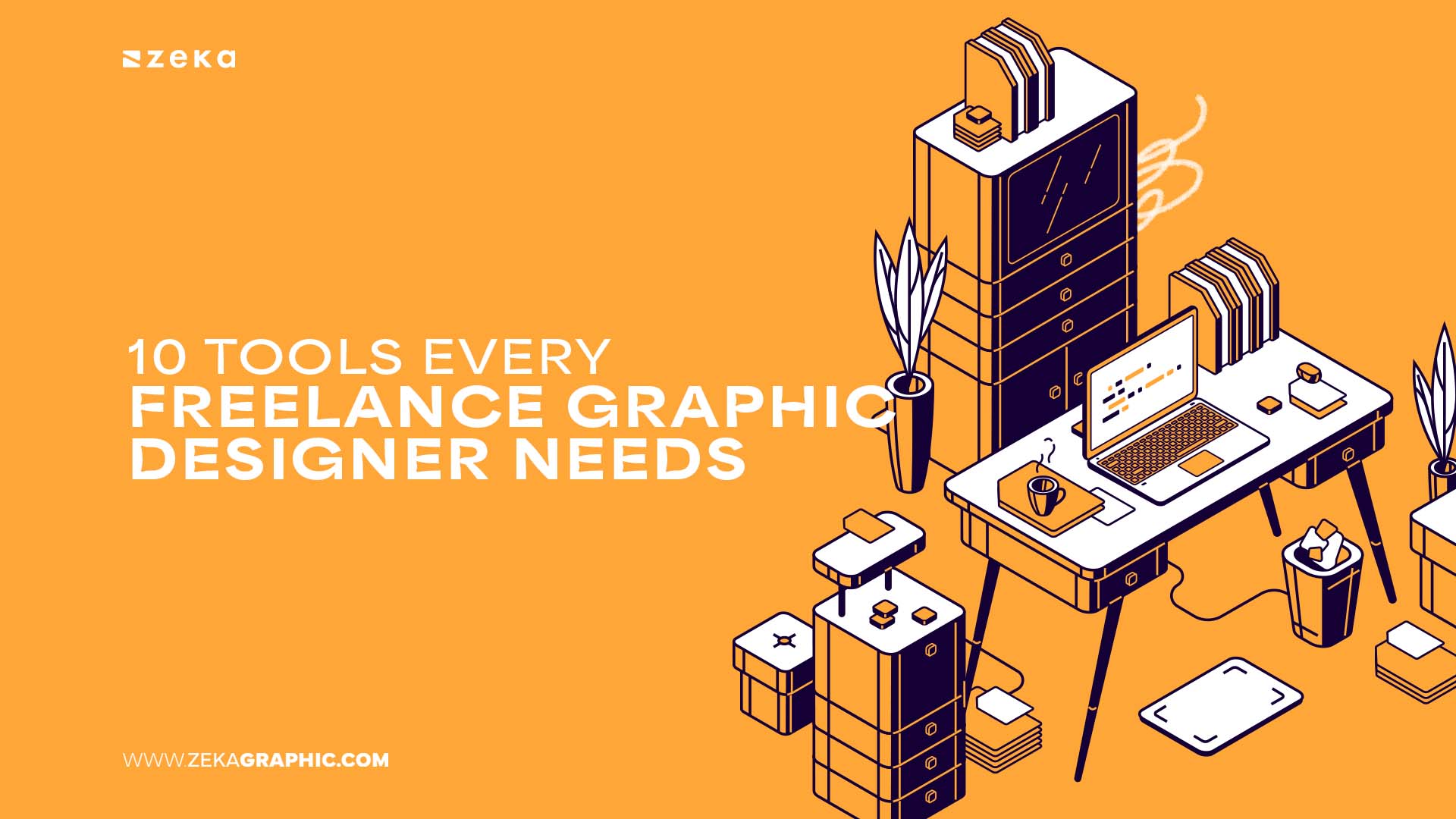
Stepping into the world of freelance graphic design means wearing many hats—creative, project manager, communicator, and business owner. And let’s be honest: juggling all of that without the right tools? A recipe for stress and missed deadlines.
The best freelance designers don’t just rely on talent—they build smart systems to stay organized, boost productivity, and deliver work that stands out.
In this article, I’ll walk you through 10 essential tools for freelance graphic designers—from powerful design platforms and asset libraries to seamless project management and client communication solutions. These are the tools that help you work smarter, impress clients, and grow your business without burning out.
Advertisment
When people think of professional graphic design, Adobe Creative Cloud usually comes to mind—and for good reason. It remains the gold standard for freelancers who need advanced control, flexibility, and power in their creative work.
The suite includes a wide range of tools that cover nearly every aspect of the design process, from photo manipulation to vector illustration to layout design. The core apps I rely on most are:
But there’s more to Creative Cloud than just the heavy-hitters. Some underutilized tools that deserve more love:
One thing I always recommend is setting up shared Libraries for each client. That way, no matter where I’m working from—or which Adobe app I’m using—I always have consistent brand elements at my fingertips.
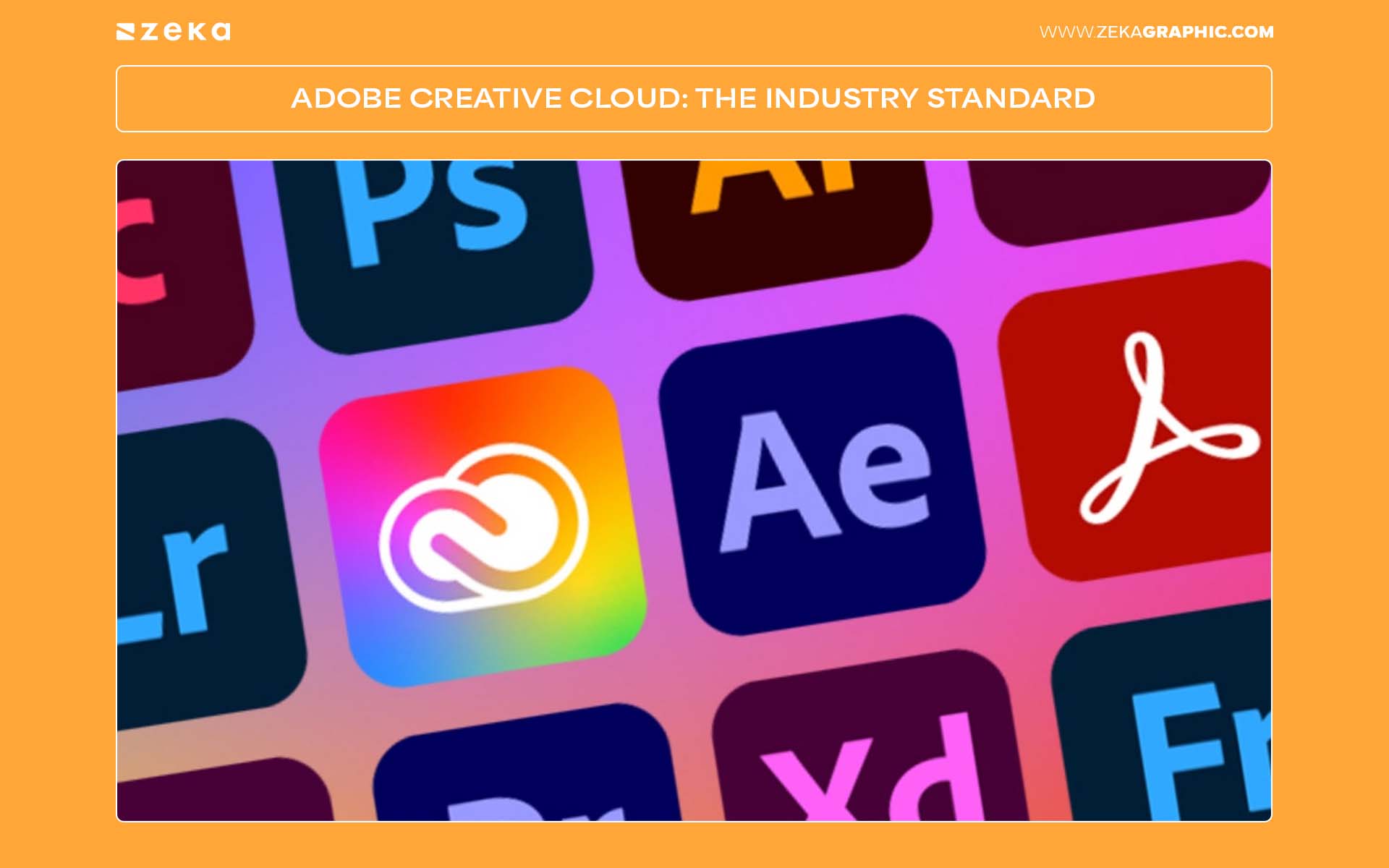
Freelancers often juggle multiple clients, deadlines, feedback threads, and asset libraries—usually across several tools. That’s where Notion shines. It’s not just a note-taking app; it’s a fully customizable digital workspace that can handle everything from to-do lists to content calendars to moodboards.
Here’s how Notion can level up your design workflow:
One of the biggest advantages of Notion is how adaptable it is. You can start with basic to-do lists and evolve into full dashboards that mirror an agency-level system. I use linked databases to track revisions, invoices, and client onboarding—all from a single dashboard.
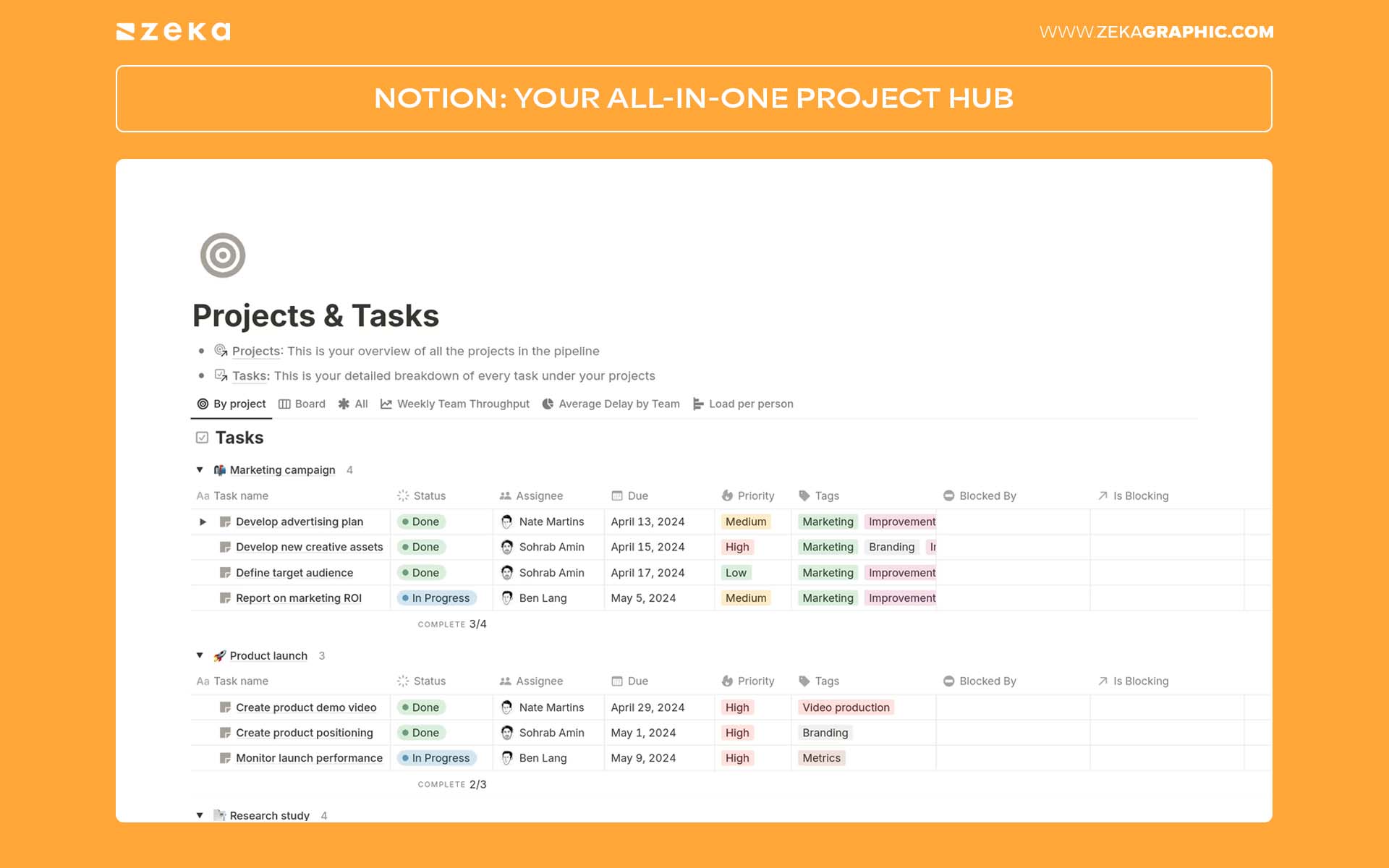
Advertisment
Time is money when you freelance—and every missed deadline or miscommunication can cost you. That’s why having a visual project management system like Trello or ClickUp is a game changer. Both platforms help you break large projects into manageable steps, assign tasks, and keep track of progress.
Here’s what Trello brings to the table:
ClickUp is a bit more advanced and ideal for freelancers handling complex or multi-stage projects:
Use either tool to stay aligned with your clients, log feedback efficiently, and maintain a clean production flow.
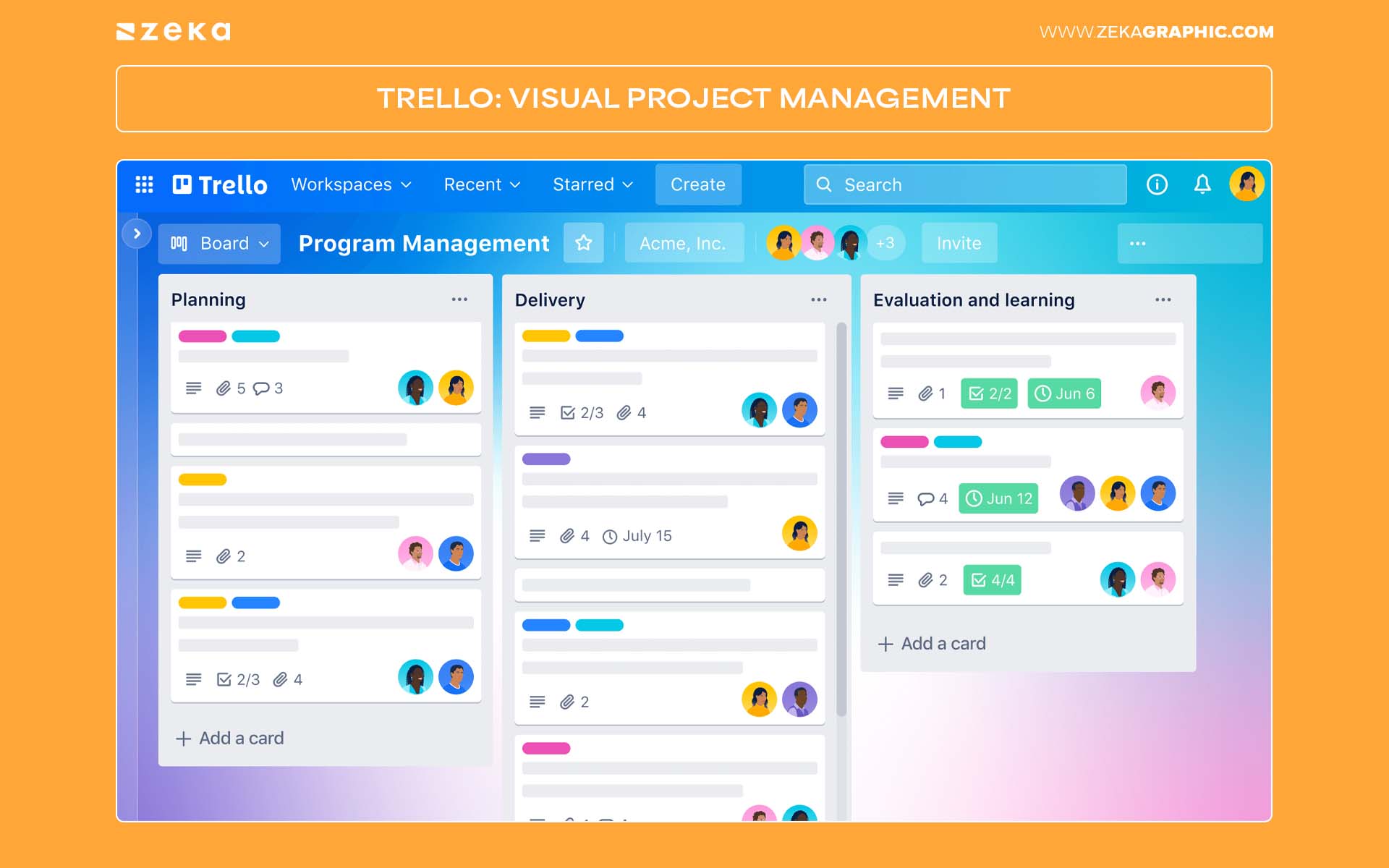
Let’s be real—nothing kills your credibility faster than losing files. Cloud storage tools like Google Drive and Dropbox give you peace of mind by making sure your work is always backed up, organized, and accessible from anywhere.
Google Drive is ideal if you already use Google Workspace. Dropbox, on the other hand, offers more robust file syncing and backup options. I use both, depending on the client’s preference.
Why these tools are essential:
Pro Tip: Set up shared folders for each client and keep an archive of final deliverables in a “Client Exports” folder. It makes hand-offs smoother and builds trust.
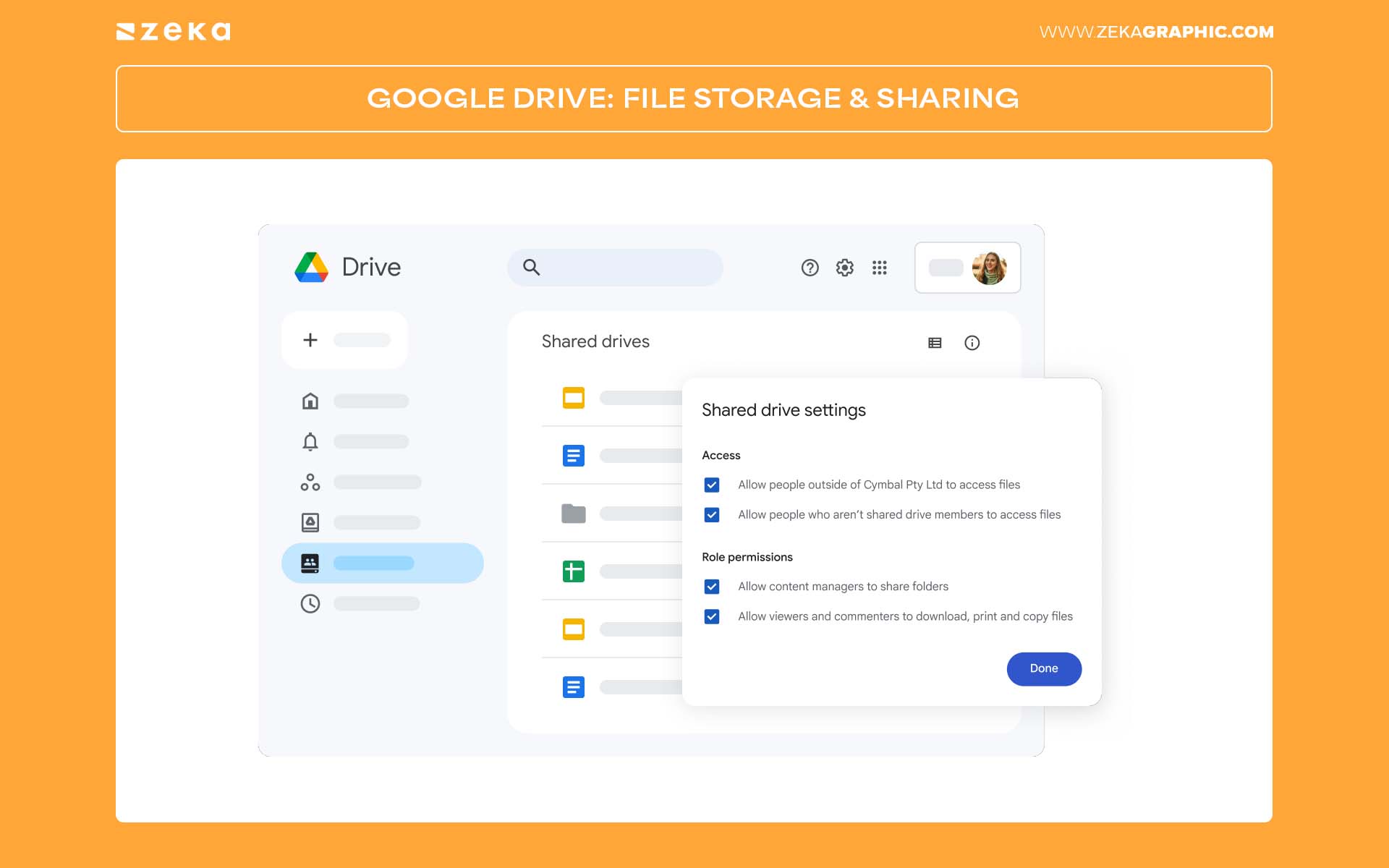
Advertisment
Not every project needs the complexity of Photoshop or Illustrator. Sometimes, what you really need is speed and simplicity. Canva Pro fits that niche perfectly. It’s cloud-based, intuitive, and comes packed with features that make it ideal for fast-paced freelance work—especially when dealing with social media design, proposals, or brand mockups.
What makes Canva Pro such a powerhouse for freelancers:
Canva is a powerful tool for creating client-facing documents like pitch decks, quick mockups, and social media graphics. It significantly reduces production time while maintaining a polished, professional look. One of its key benefits is allowing non-designer clients to collaborate visually—without risking changes to your original design files.
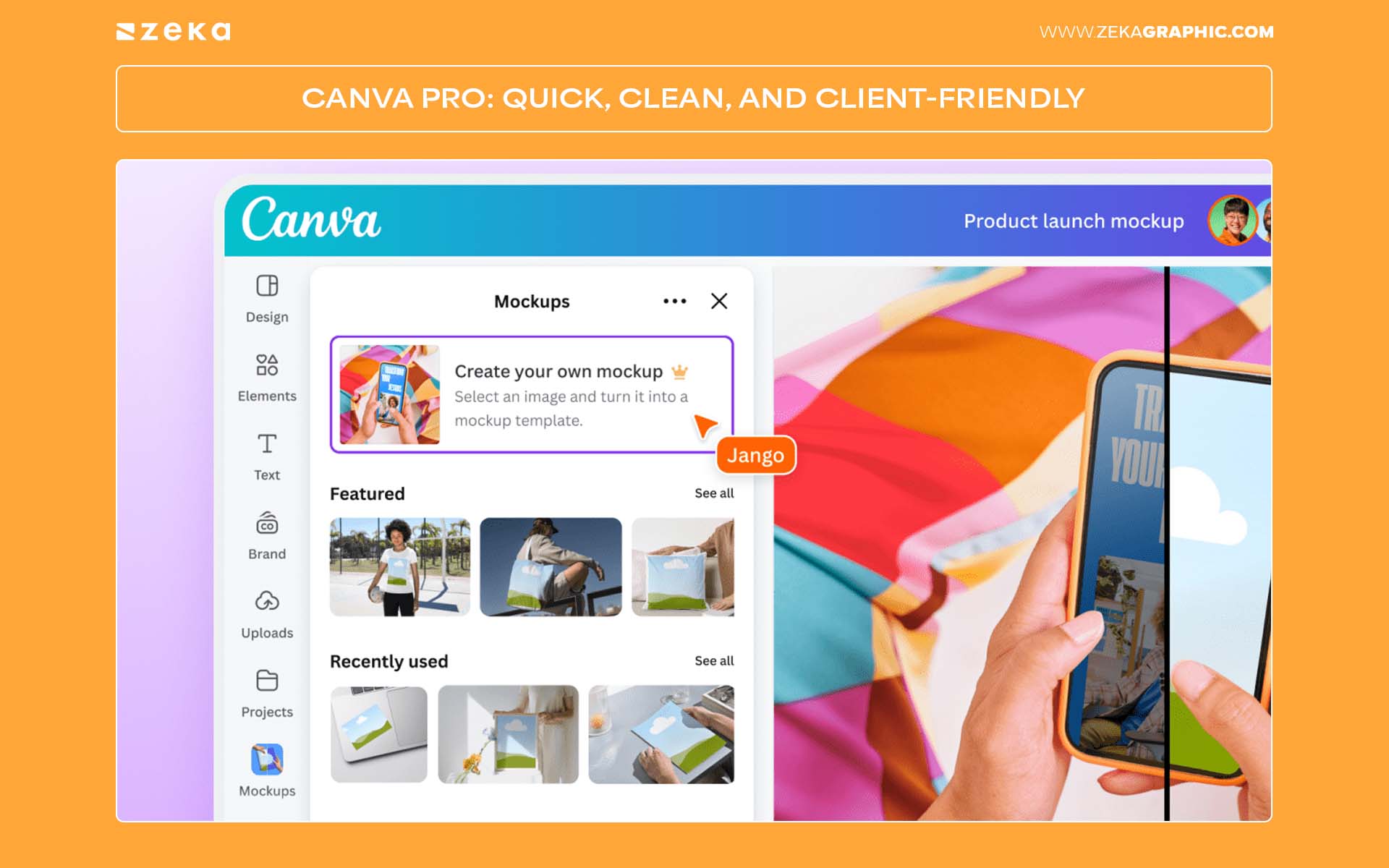
When you’re juggling multiple client projects, keeping track of your hours isn’t just helpful, it’s essential for accurate billing and understanding where your time is going. That’s where Toggl shines. It’s a simple yet powerful time tracking tool designed with freelancers in mind.
Toggl makes it easy to track your time across tasks, clients, and projects. Whether you prefer manual time entries or a one-click timer, Toggl keeps things streamlined. Plus, with visual reports and breakdowns, you can quickly see how your time is allocated, helping you make smarter decisions about pricing, project scope, and workload.
Key features that make Toggl a must-have for freelancers:
Toggl’s free plan is generous enough for many freelancers, while its paid plans add even more power, like billable rates and team management features. It’s the kind of tool that helps you work smarter, not harder, while staying accountable to your clients.
Tracking how you spend your hours is essential not only for billing clients but for understanding your own productivity patterns. That’s where Clockify becomes an invaluable tool. It’s a free, intuitive time-tracking platform that lets you log every minute you spend on a project—whether it’s concept development, revisions, or client meetings. You can categorize tasks by project, set hourly rates, and export reports for client transparency.
Clockify integrates seamlessly with tools like Trello, Asana, and Notion, which means your time data flows naturally with your project workflows. You can view how long you’ve worked on each task and compare time estimates vs. actuals. This is especially useful for learning how to price future projects more accurately or adjusting your schedule to prevent burnout.
Why Clockify stands out:
Over time, Clockify can help you refine how you structure your day, quote projects more accurately, and build trust with your clients through transparent time reporting.
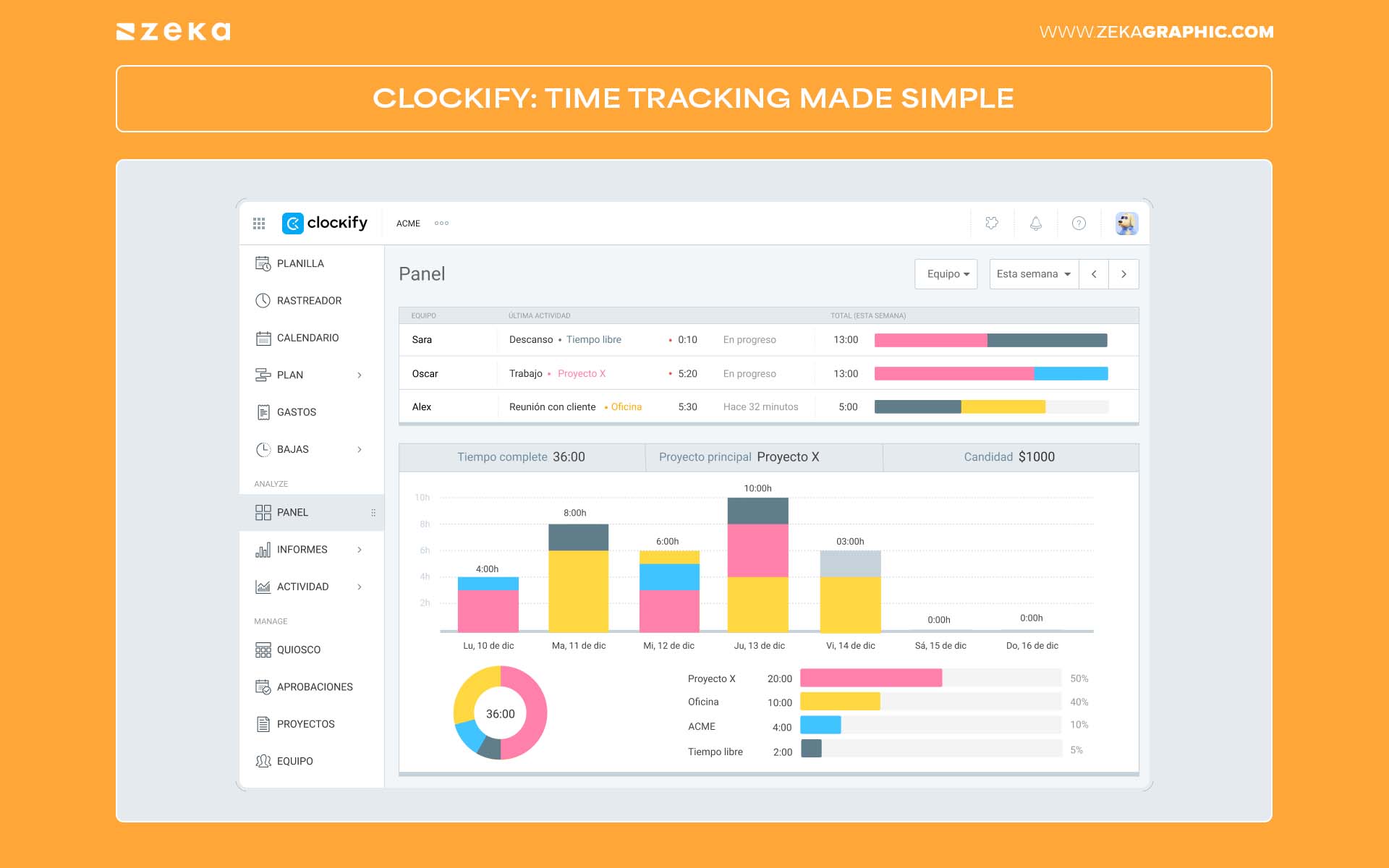
Every freelance graphic designer has experienced the chaos of digging through folders trying to find that one image, font, or client logo. That’s why asset management tools like Eagle can be game changers. Eagle is a smart visual library built specifically for creative professionals. It allows you to collect, tag, preview, and organize every kind of visual file you need—from JPGs and PNGs to font files, PDFs, mockups, and even inspiration pulled from the web.
With Eagle, you can create custom tags and folders, filter assets by file type or color, and use smart folders to organize projects automatically. Its browser extension even lets you save images and graphics from the web with one click, building up your visual references or mood boards without breaking your workflow.
Top features for freelance designers:
An organized asset library helps speed up your creative process, reduces duplicated work, and makes it easier to reuse and repurpose design elements across projects. Eagle is especially helpful when you’re managing multiple brand guidelines or styles.
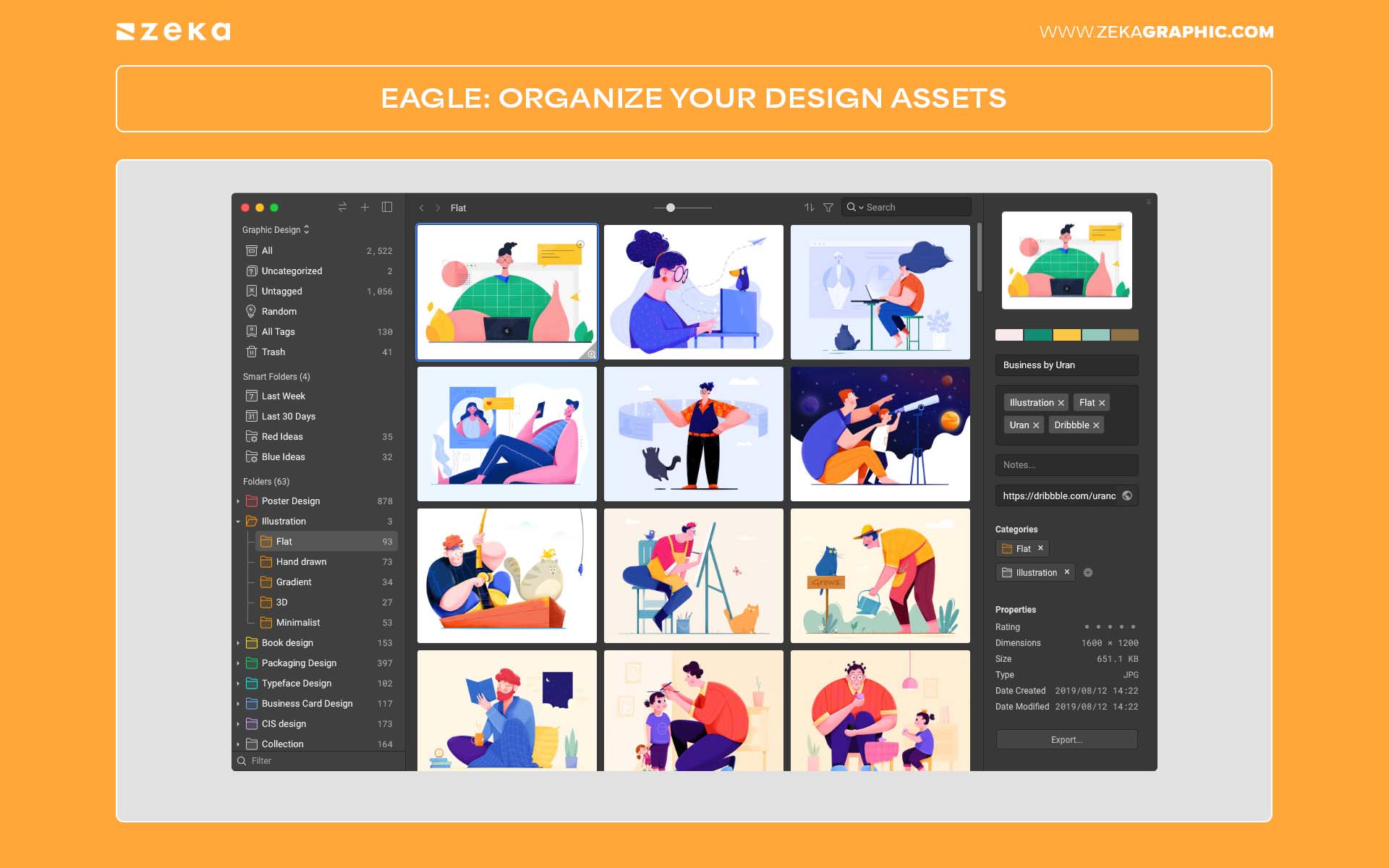
Advertisment
Good design thrives on good communication—and as freelancers, we don’t have the luxury of watercooler chats or impromptu meetings. That’s where Slack comes in. It’s a messaging platform that helps streamline communication with clients and collaborators, keeping everything in one searchable place instead of scattered across emails, DMs, or project notes.
You can set up dedicated channels for each client or project, share design previews, attach assets, and gather feedback in real time. Slack even integrates with apps like Google Drive, Trello, and Notion—so you’re not jumping between tabs or tools. It’s perfect for building stronger client relationships through quicker, more transparent updates.
Why freelancers love Slack:
Using Slack keeps you responsive and accessible, which builds trust and positions you as a professional who’s easy to work with. You’ll find that projects move faster, revisions become smoother, and client relationships improve.
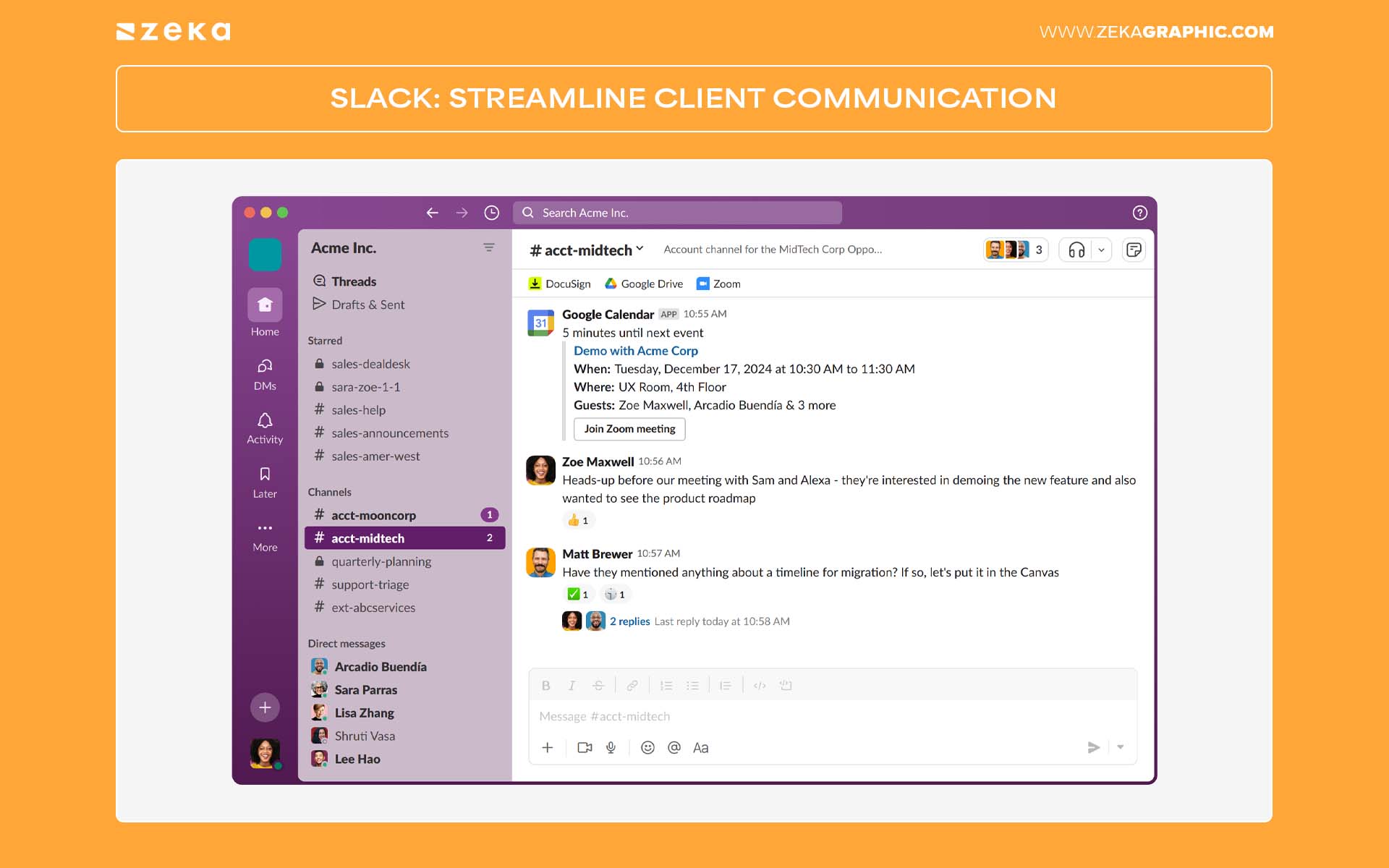
Let’s face it—most designers didn’t become freelancers to manage spreadsheets and track tax deductions. But getting paid and staying on top of your finances is essential to running a sustainable creative business. That’s where FreshBooks comes in. It’s an all-in-one accounting solution built with freelancers and creatives in mind.
FreshBooks makes it incredibly easy to send branded invoices, log expenses, track payments, and generate tax-ready reports. You can accept credit card or PayPal payments directly through your invoice and even automate recurring invoices for long-term clients. If you’re used to chasing late payments or manually adding up income, FreshBooks is a total game-changer.
FreshBooks helps you:
Having your finances organized means less stress, fewer surprises at tax time, and a better understanding of your income flow. It’s a professional move that makes you look polished and reliable in your clients’ eyes.
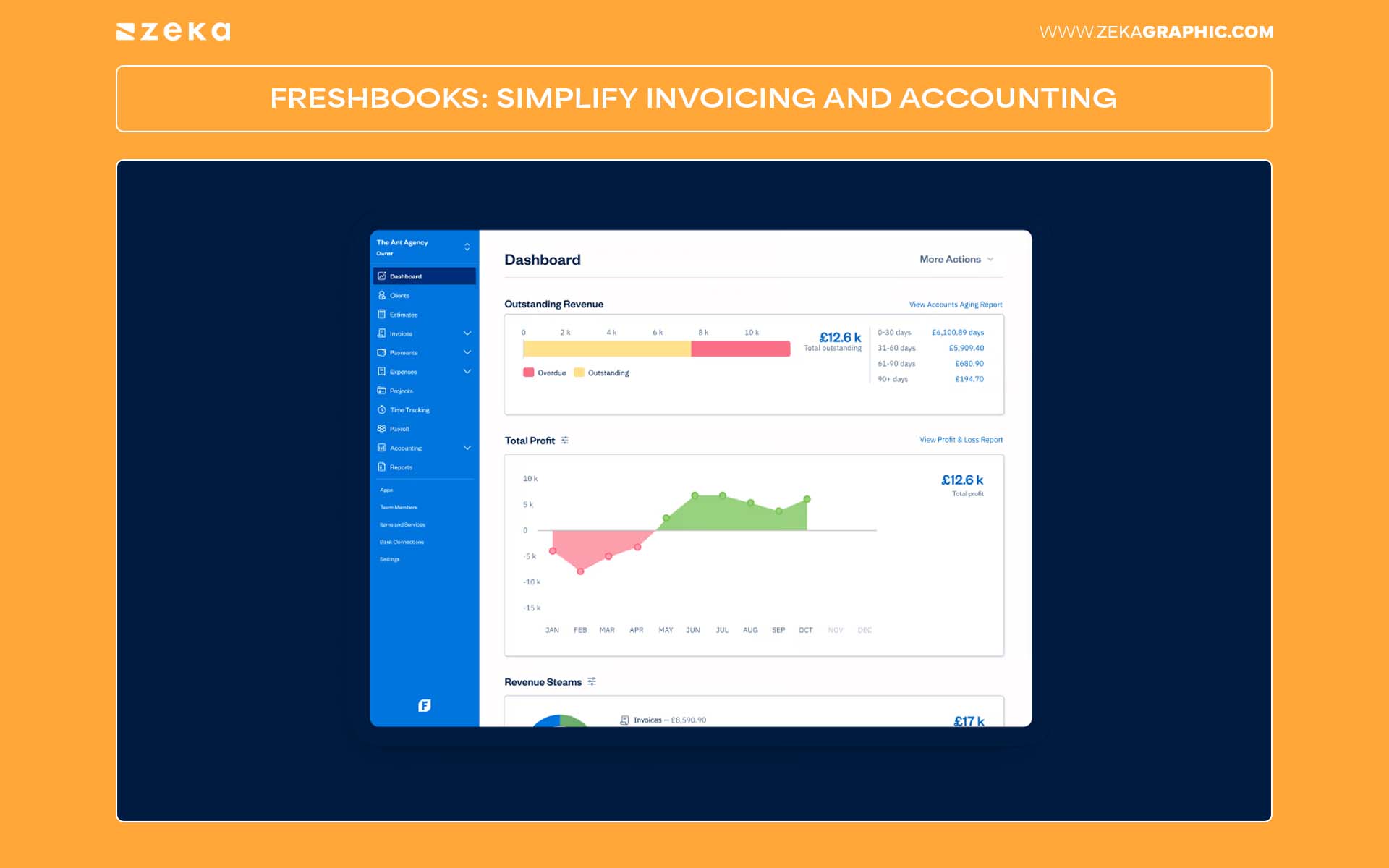
In the freelance world, your portfolio is your resume, elevator pitch, and sales tool—all rolled into one. That’s why Behance remains one of the most important platforms for freelance designers to build an online presence. With millions of visitors and integration with Adobe Creative Cloud, Behance offers the exposure and flexibility you need to present your work professionally and find graphic design inspiration.
You can showcase full design projects, add context through case study descriptions, and organize work by client, style, or industry. The platform also gives you visibility through curated galleries, search functions, and peer feedback. If you want to grow your reputation and attract high-quality freelance clients, Behance is the place to be.
Why use Behance for your design portfolio:
Keeping your Behance portfolio up-to-date helps you stay relevant, visible, and discoverable. It’s not just a showcase—it’s a gateway to real opportunities.
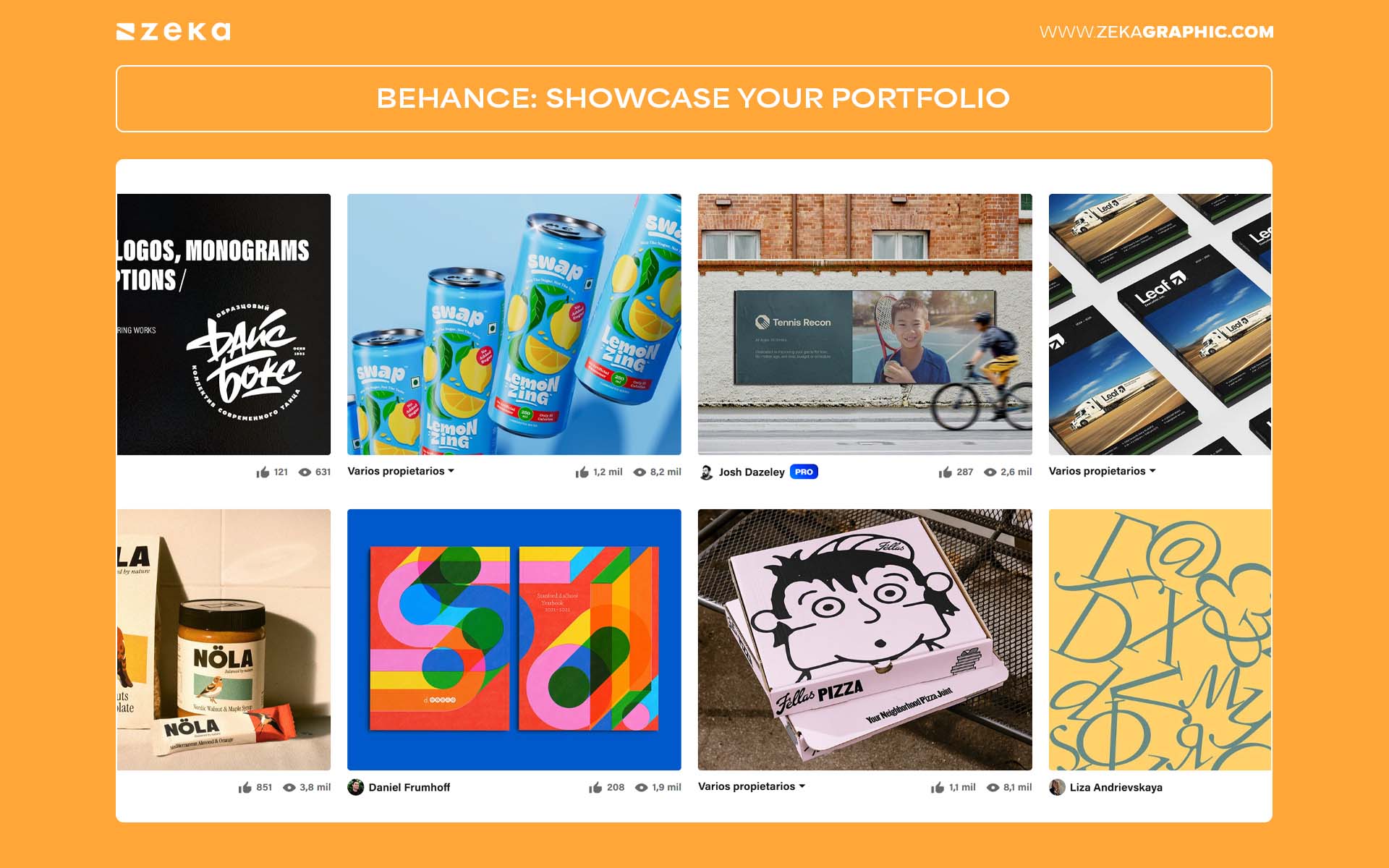
Advertisment
The life of a freelance graphic designer is fast-paced, creative, and—at times—overwhelming. But with the right tools in your arsenal, you can streamline your workflow, communicate better with clients, and stay focused on what you do best: designing.
These 10 tools aren’t just helpful—they’re essential. Whether you’re organizing design assets in Eagle, tracking time with Clockify, or managing projects through Notion or Trello, each one brings clarity and structure to your creative chaos.
Looking to level up your freelance workflow even further? Once you’ve built your toolkit, don’t miss our curated list of the best websites to find freelance jobs—ideal for landing consistent work with clients who value your time and talent. And if staying productive is a daily challenge, our guide on the best productivity tools for freelance designers will help you stay sharp, focused, and ahead of deadlines.
Start by integrating just one or two tools into your daily routine, and build from there. With the right systems in place, you’ll not only work more efficiently—you’ll grow with confidence, clarity, and creative freedom.
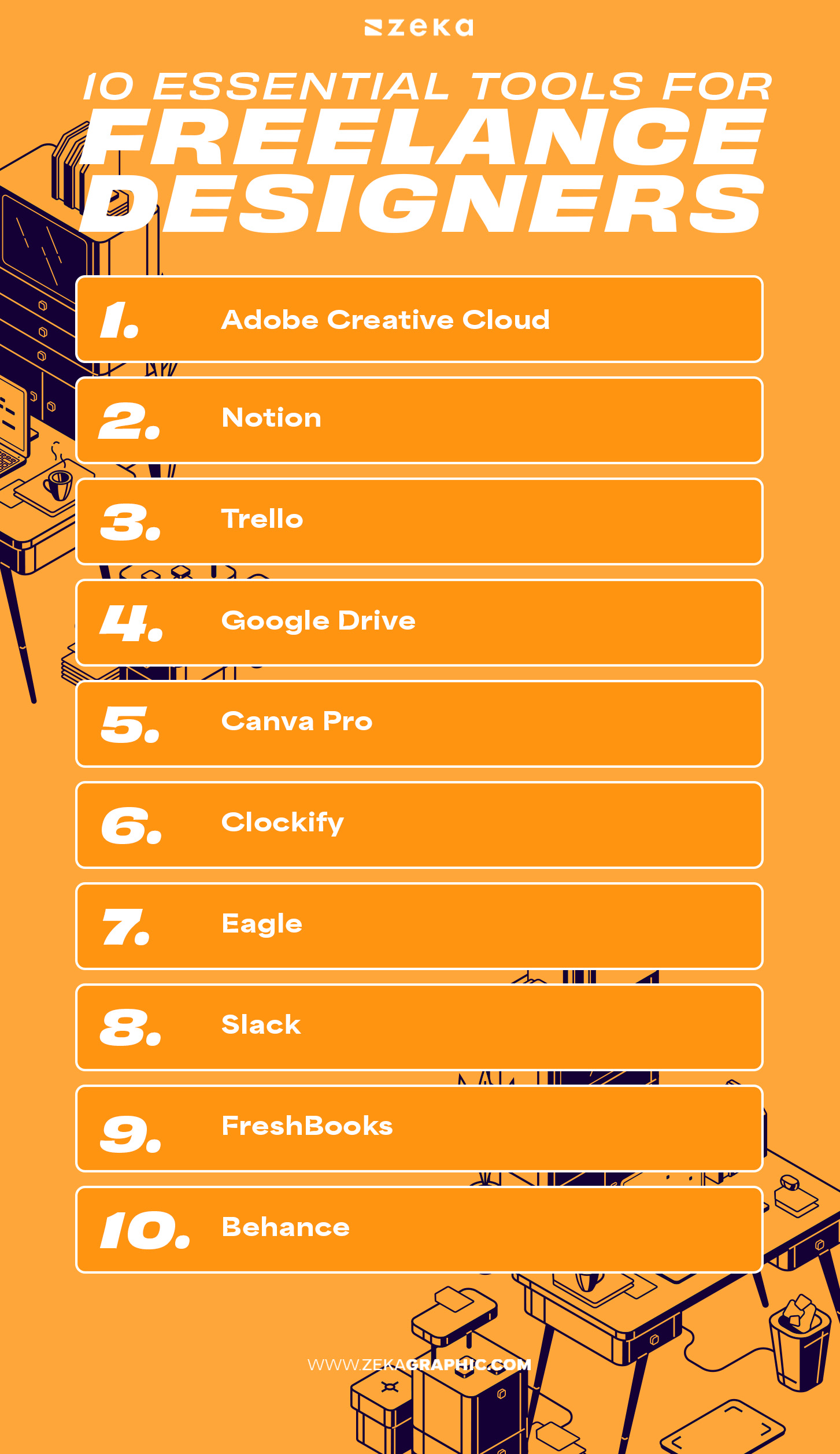
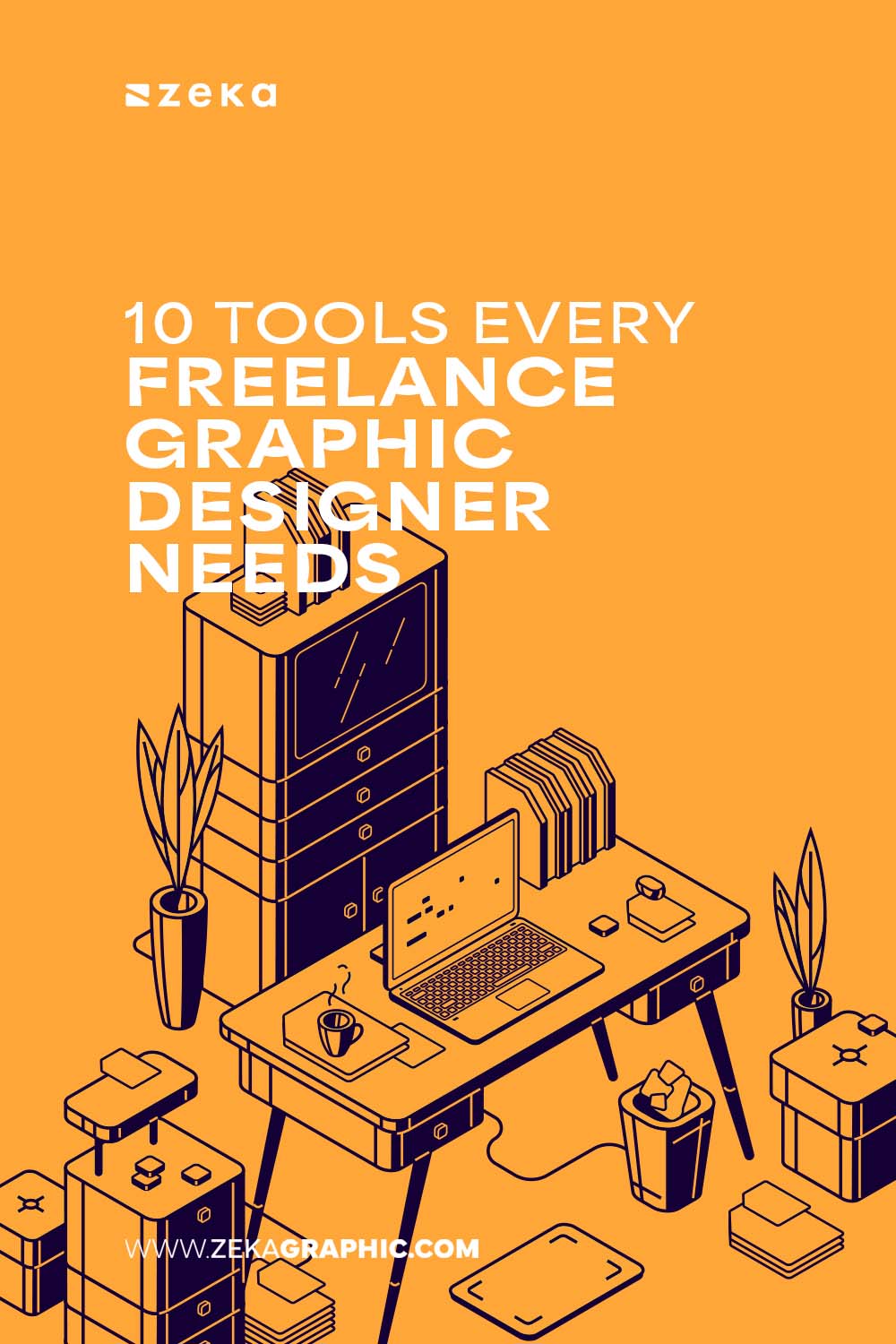
If you found this post useful you might like to read these post about Graphic Design Inspiration.
Advertisment
Written by
If you like this post share it on your social media!
Advertisment
Advertisment